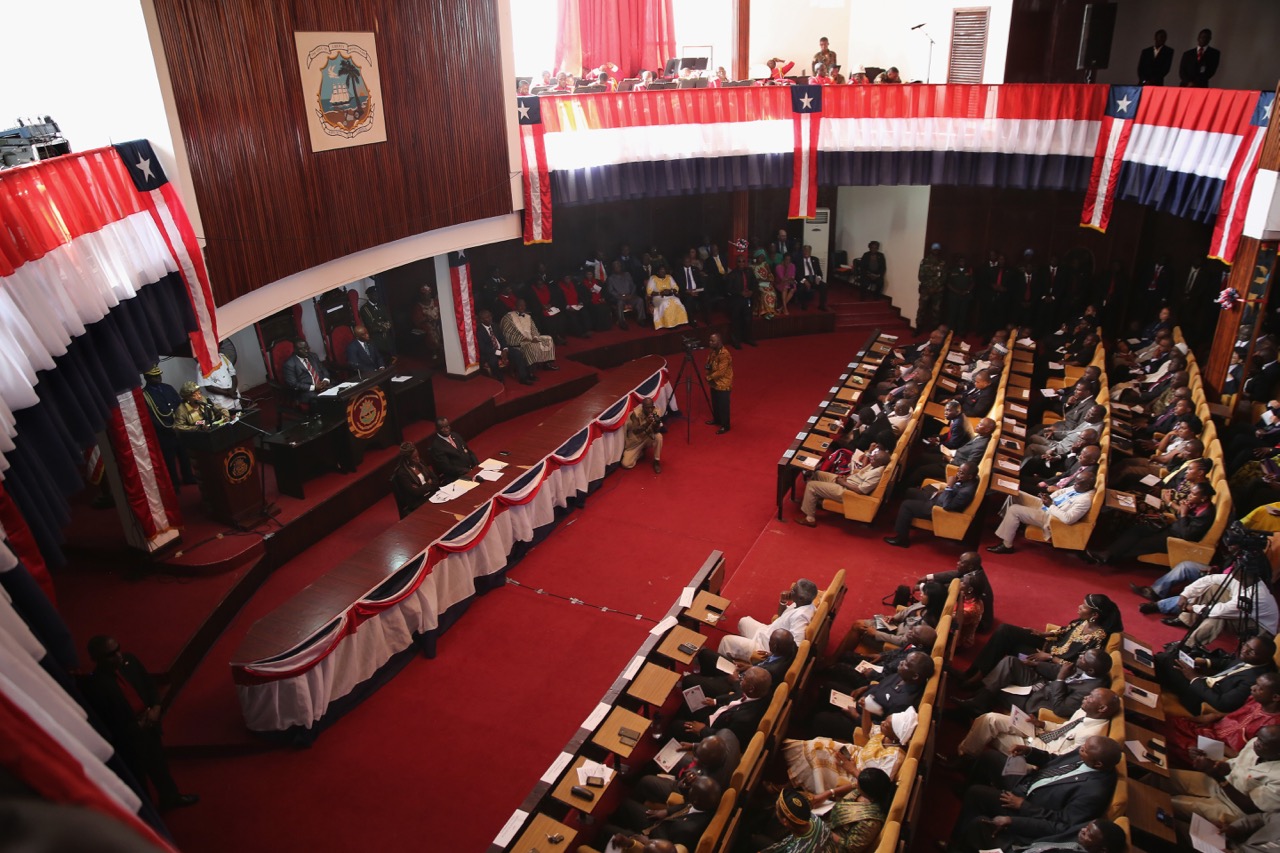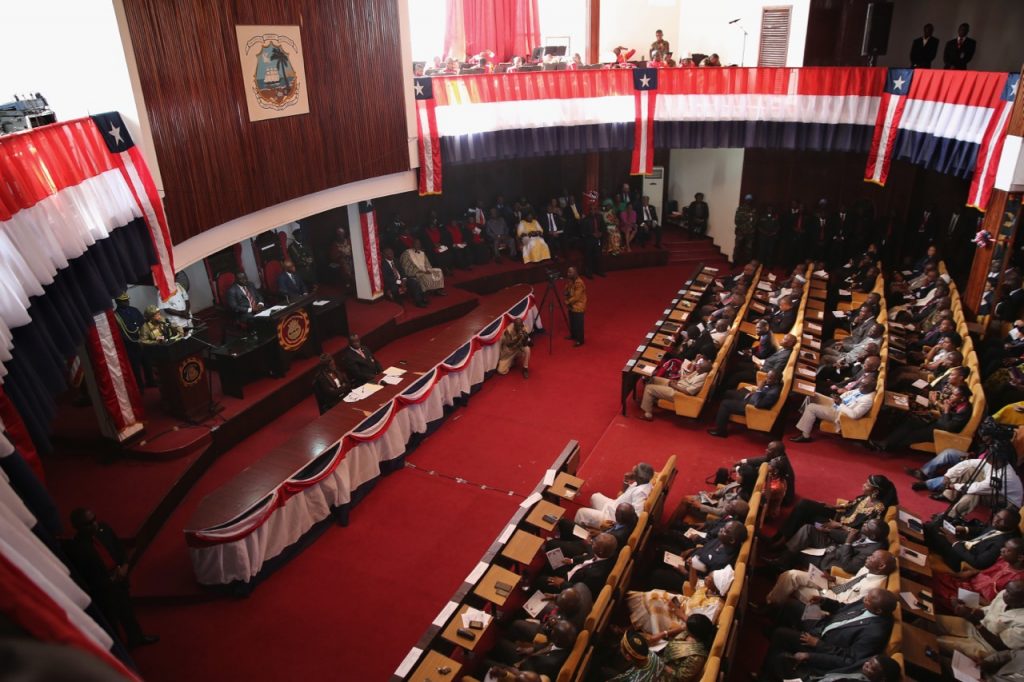Five years after the introduction of the Domestic Violence Bill at the Legislature and despite undergoing several changes, members of House of Representatives have failed to pass it into law.
The law is seeking tighter punishment for perpetrators of domestic violence and protection for victims and survivors.
The closest the bill came to being passed by the House was Tuesday, July 2, following the submission of a revised bill by the Joint Committee on Judiciary, Good Governance, and Gender Equity & Social Protection.
Despite the presence of several gender campaigners and diplomats led by the Minister of Gender, Children and Social Protection, Williametta Piso Saydee-Tarr, the United States Ambassador accredited to Liberia, Christine Elder and representatives of the Swedish Embassy accredited near Liberia, the bill could not be passed as lawmakers called for more time to peruse the document.
Following a sustained debate on the floor, plenary voted in favor of a motion for reconsideration proffered by Rep. Acarous M. Gray (Montserrado Co. Dist. #8), requesting the joint committee to resubmit the bill next Thursday for further debate and possible passage at which time lawmakers would have had ample time for perusal.
Background of the Bill
In 2014, the first of a series of attempts to upgrade Liberian domestic violence laws as contained in Chapter 16 of the penal code was initiated.
None of the early versions of the bill was successful because paramount to the issue of violence against women in Liberia was what is known as Female Genital Mutilation (FGM) – a traditional practice that has been universally considered a violent and inhumane act.
FGM, also known as female genital cutting or circumcision, is the ritual cutting or removal of some or all of the external female genitalia.
FGM has been a contentious issue, which is a core aspect of Liberia’s sacred traditional female school, the Sande Society.
For fear of a political backlash of the traditional groups, previous sponsors [lawmakers] could not muster sufficient support in the Legislature to ban the practice. As a result, the passage of Domestic Violence bill continues to stall at the Legislature since its introduction in 2014.
However, following series of consultations with local and international partners including the traditional council of Liberia, women advocacy groups, USAID and the Swedish Embassy in Liberia, the Bill was reintroduced in the House by Rep. Rosana G.D.H. Shaack (Rivercess Co. Dist. #1) on May 26, 2019.
Plenary subsequently referred the document to the joint committee on Judiciary, Gender & Children Protection, and Good Governance.
Following consultations with major stakeholders including the proponent and chief sponsor, Rep. Rosena Shaack, Gender Minister Piso Saydee-Tarr and Madam Francis Greaves of the Civil Society Secretariat of Liberia, the committee omitted FGM and submitted the bill with a revised title, the Domestic Violence Act of 2019.

Craving the indulgence of plenary to pass the bill in its revised version, the Chairman of the Joint Committee, Rep. J. Fonati Koffa (Rep. River Gee Co. Dist. #2), who is also the Chairman on Judiciary, noted that following consultation from diverse backgrounds, the committee opted to make the issue of FGM a “standalone bill.”
What’s in the bill?
The act, among other things, recognizes domestic violence as a serious crime against the individual and society which takes on many forms, including physical, abuse, sexual abuse, neglect, and exploitation.
The act supports the efforts of victims and survivors of domestic violence to avoid further abuse by prompt court action and clarifies the responsibilities and support of the efforts of law enforcement officers to provide immediate and effective assistance and protection for victims of domestic violence.
It calls for the offence of domestic violence to constitute a felony of the second degree where a defendant inflicted a bodily injury on the survivor/victim, a defendant used or brandished a deadly weapon or has a prior conviction.
However, anything other than the above offences, the law says it shall constitute a misdemeanour of the first degree.
Will it be passed in its current form?
Although there are some scepticisms over the passage of the bill by both Houses in its current form, many lawmakers and civil society actors are optimistic that the bill will be passed.
This comes in the wake of Vice President Jewel Howard Taylor’s recent criticisms of the revised version that omitted FGM.
Apparently, VP Taylor, having heard of the omission of FGM by the joint committee at a hearing in Buchanan, thought that the Senate has passed the bill.
Speaking to FrontPageAfrica, VP Taylor called on all women to join her to fight against the passage of the bill into law in its current form.
However, during Tuesday’s deliberations at the Lower House, there seems a show of unanimous support by plenary as lawmakers were only concerned about the time for perusal.
Evident by the overwhelming support that Rep. Acarous Gray’s motion of reconsideration received after it was tested on the floor.
Plenary had earlier voted in favor of Rep. Jeremiah Koung’s motion to extend the discussion of the bill to next Tuesday’s sitting (July 9, 2019), but Rep. Gray filed in a motion of reconsideration, adjusting the date to Thursday, July 4, and it was voted upon by the Majority.
Giving the show of unanimity, Rep. J. Fonati Koffa, in a statement later said: “Today was a victory for the fight against domestic violence. Although we were not able to pass the bill today, we were able to secure consideration for the next session on Thursday. We will use the time to answer our colleagues’ questions. As you can see, this is a majority for the passage of the bill in its current form.”

